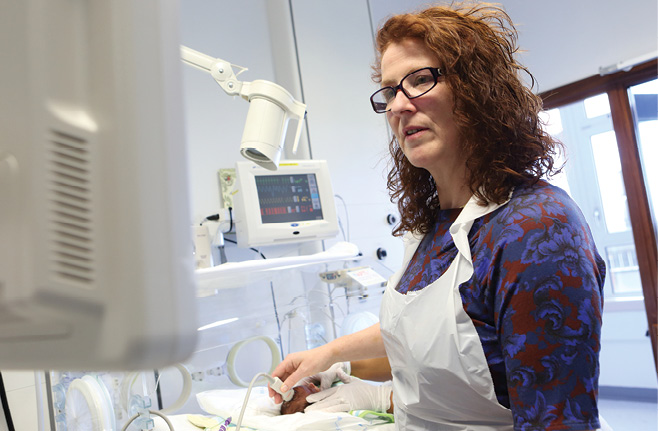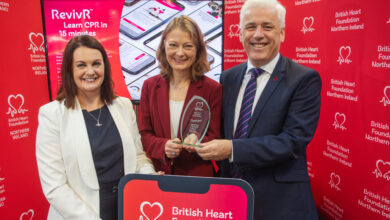Engaging for change


Dr Anne Carson, Chair of the British Medical Association (BMA) Northern Ireland’s consultants committee reflects on the recent ministerial announcement of ‘Health and Wellbeing 2026’ and how genuine clinical engagement must be part of any changes to the health system.
The current diagnosis for the health service is probably severe exhaustion. For a long time now we seem to have lurched from crisis to crisis; waiting lists are increasing, staff numbers are decreasing and morale is being eroded.
Concomitant to this is consultation fatigue and frustration. The list of consultations we have been through in Northern Ireland is well rehearsed – Hayes, Donaldson, Transforming Your Care, but despite these efforts, real change has yet to be achieved, and the problems are getting worse.
The recently published Minister’s vision and Bengoa report make for more optimistic reading, and there is a sense that maybe this time we will see real changes, but there are still a lot of unanswered questions as to exactly how the proposals will be implemented.
A core theme throughout all of these reports and consultations has been the need for proper clinical engagement, with each of the report authors saying they were keen for there to be clinical engagement and reiterating how important it is in developing a better and more integrated health service. Indeed the BMA has long called for doctors to be more involved in the big decisions involving health so there can be a clearer, more coherent, long-term vision for health.
What does that ‘proper clinical engagement’ really mean? And do clinician’s views of clinical engagement mean the same as the civil servants? And how do we make sure the process is meaningful and not just box ticking?
Successful clinical engagement
I believe that in order for clinical engagement to be successful it needs to be fair, equitable and reasonable. It also should be sufficiently resourced, including enabling doctors to access appropriate training so they can develop the skills necessary to be involved.
The British Medical Association in Northern Ireland has consistently called for more genuine clinical involvement and engagement of its members. We strongly believe that successful health and social care planning can only be achieved with GPs, secondary care consultants, junior doctors and speciality doctors working together to identify issues and find solutions.
There is also a significant role for our public health consultants in identifying trends and in helping develop the vision for a population health model that will determine the health needs of people in Northern Ireland. And there is an essential role for clinical academics in developing medical education, research and training in order for it to meet future healthcare needs. It is absolutely essential that all these expert clinicians have a role in planning our health system.
In my own job as a consultant radiologist I have seen how proper clinical engagement has resulted in an excellent gynae cancer multi-disciplinary team service both locally in the Southern Trust and regionally. By using Northern Ireland Cancer Network standards, assisted by an evidence based practice and proper funding, we have improved the patient experience and outcomes as a team.
In contrast, multiple calls from radiologists to increase training numbers have gone unheard by policy makers, resulting in a service in crisis with more than 45 vacancies across Northern Ireland.
Northern Ireland is not alone in facing the challenge of making clinical engagement a reality. Currently Healthcare Improvement Scotland is running a successful programme aimed at developing clinical engagement. Their strategy ‘Improving Healthcare Together’ identified five priorities needed for successful clinical engagement: creating a culture where clinicians saw collaboration as necessary, valuable and worthwhile; developing a respectful partnership between all stakeholders; developing sustainable infrastructure; and having an efficient and cost-effective approach to clinical engagement, with the process continually reviewed.

Principles for clinical engagement
BMA members have outlined a number of key principles they believe need to be put in place to support proper clinical engagement. Firstly and most importantly clinicians input needs to be trusted, valued and respected. There must be a genuine willingness, on both sides, to listen and learn.
Secondly, any proposals that are put forward must be evidence based, and that’s where good clinical engagement comes to the fore. Staff working at the ‘coal face’ are frequently best placed to advise on changes that are needed to make systems or processes more efficient, and more importantly, patient centred. This in turn requires better systems to be set up for information sharing, and there also needs to be time allocated for doctors to get involved in these processes.
Thirdly, there needs to be a clear and appropriate funding stream allocated to this work, as well as to any other proposed changes in the health service. The finance side of the administration needs to actively involve clinicians in the costing process and they can do that by providing robust, well-presented financial data. For example, the PLICS (patient level information and costing system) used in England charts the cost of the patient on their journey through the hospital, which in turn makes it easier to compare data and determine what could be done better.
Another major factor for doctors wanting to get more involved in clinical engagement is time. Research undertaken by the BMA found that one of the biggest barriers for doctors was a lack of time and resources to meet clinical pressures, meaning this was competing with time for what would be considered non-clinical activity. The lack of proper workforce planning and the high level of consultant vacancies in many specialties further exacerbates consultants’ ability to be given proper time for activities outside basic clinical demand. This is true for both primary and secondary care, as GPs would also have to negotiate time with practice colleagues.
Research from The King’s Fund asserts that good clinical engagement requires a more ‘nuanced’ approach than focussing on simple targets. More priority should be given to the engagement of staff – and patients – and in nurturing those in management roles across organisations and care systems.
The research also found that organisations with engaged staff delivered a better patient experience, with fewer errors, lower infection and mortality rates, stronger financial management, higher staff morale and motivation and less absenteeism and stress. All factors that need addressed urgently in the Northern Ireland health system.
In my many meetings with medical staff of all grades, and from all hospital trusts, staff told me over and over again how they knew that there were better and smarter ways of working, but the structures were not in place to capture their knowledge, expertise and ideas. However clinical evidence can only bring us so far – political leadership is the other side of the coin. The momentum that seems to be building towards real and meaningful change in our health and social care service will perhaps now mean real and meaningful clinical engagement is a possibility.
Dr Anne Carson is a consultant radiologist at Craigavon Area Hospital and Chair of BMA Northern Ireland’s Consultants Committee






